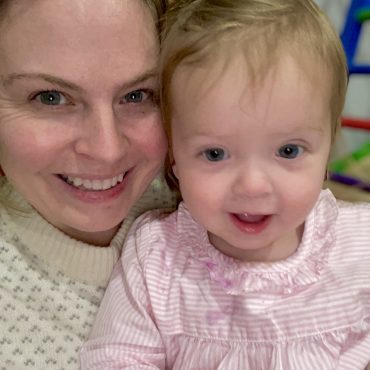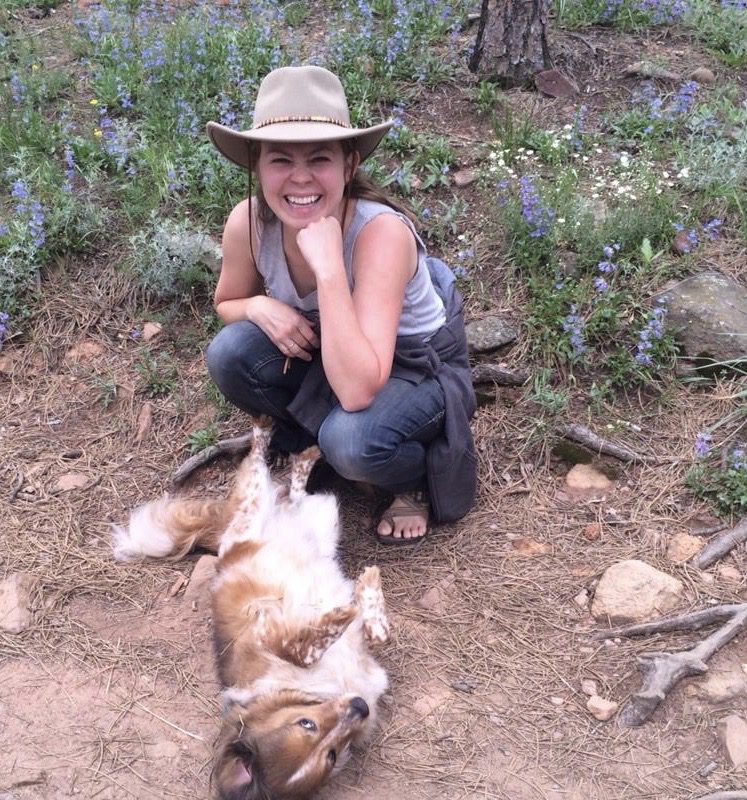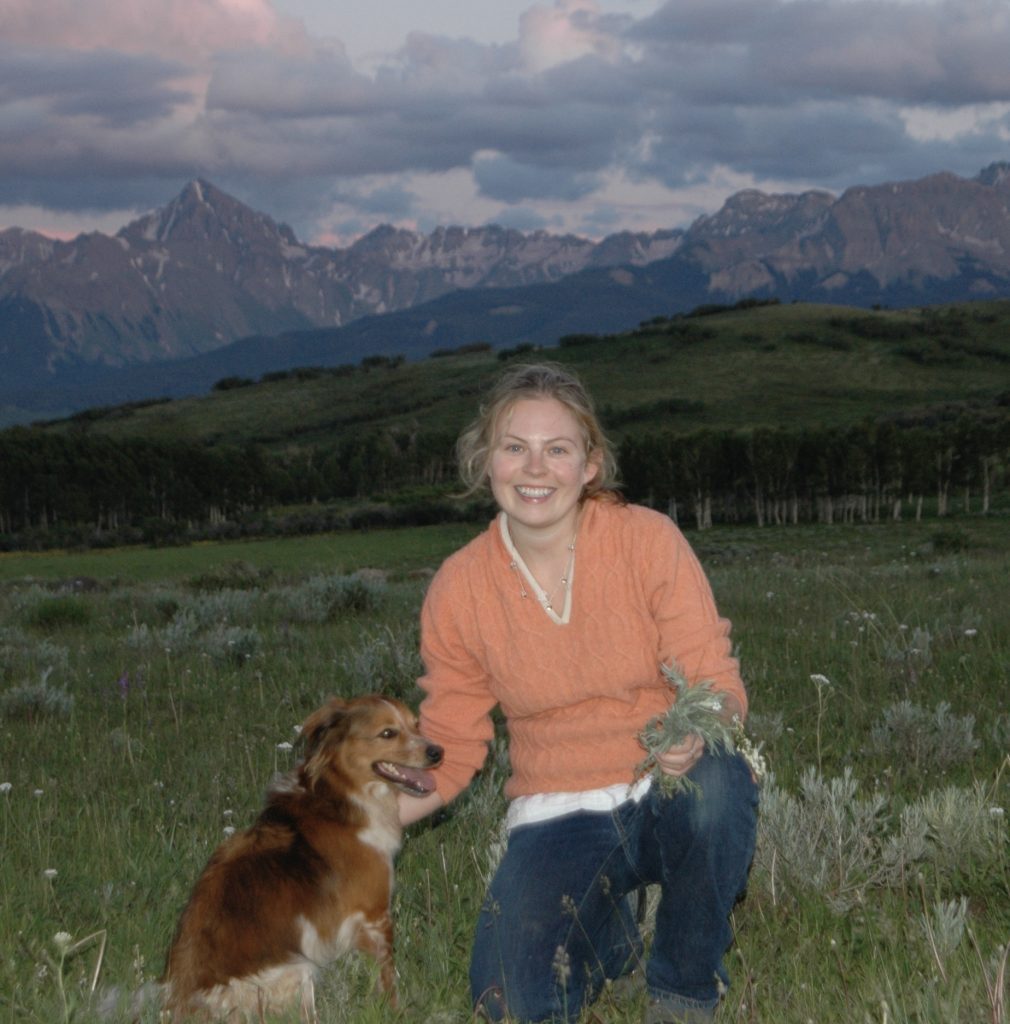Kate Toan was cool with taking her husband’s last name when they married. “How can you pass up being a Merlin?” she says. “I can definitely relate to this bird, which uses insight and strategy to hunt larger birds,” she says. Small yet fierce, merlins embody agility, determination, focus and vision, grace, mental speed and power, swiftness, and leadership. Not bad qualities for an attorney who goes after powerful industries like oil and gas.
The newest member of Guardians’ legal team, Kate has been working as an attorney for about 10 years on oil and gas and climate issues. She came on board with Guardians at the end of 2020 in the Climate and Energy Program as our Colorado attorney.
Kate credits an intense wilderness experience that set her on this path. Raised in Brooklyn, N.Y., Kate signed up in 1998 for a three-month trek through the Southwest with the National Outdoor Leadership School. She was 20.
 “More so than other outdoor education programs, NOLS really focuses on the ‘education’ part,” she says. “They teach you skills, they teach you values, and they teach you to how to actually see the things you’re looking at. Until I began working a full-time job with an infant, a toddler, and a puppy during a pandemic, it was the hardest thing I’ve ever done. I carried more than 50 percent of my body weight over 10 miles a day through the desert and over mountains….It’s hard to describe how being isolated from civilization for months, while eating, sleeping, breathing in designated wilderness areas, changes you. It’s like seeing with new eyes.”
“More so than other outdoor education programs, NOLS really focuses on the ‘education’ part,” she says. “They teach you skills, they teach you values, and they teach you to how to actually see the things you’re looking at. Until I began working a full-time job with an infant, a toddler, and a puppy during a pandemic, it was the hardest thing I’ve ever done. I carried more than 50 percent of my body weight over 10 miles a day through the desert and over mountains….It’s hard to describe how being isolated from civilization for months, while eating, sleeping, breathing in designated wilderness areas, changes you. It’s like seeing with new eyes.”
She went on to earn a B.S. in environmental science from Northern Arizona University, a J.D. from Vermont Law School in 2008, and an LLM in Natural Resources Law from the University of Colorado Boulder in 2013.
A case she calls probably her most significant to date was Martinez v. Colorado Oil and Gas Conservation Commission, which challenged oil and gas regulators to address climate change. Although ultimately the case was lost at the Colorado Supreme Court, in another sense it was a win for the environment: the agency’s position was revealed—that it didn’t have a duty to protect public health, safety, welfare, or the environment when it regulated oil and gas development. And the unprecedented public scrutiny led to legislative reforms within just a few months of the decision.
Before Kate joined the Guardians staff, she represented Guardians at a Clean Air Act challenge to Colorado’s so-called “90-day loophole.” Before this suit, Colorado allowed oil and gas producers 90 days of production prior to applying for air pollution permitting. “Production” was also defined as saleable production, not the moment at which hydrocarbons began coming from the well. The rationale was to allow producers to get a better understanding of what a well’s production levels would be before they obtained permitting. Unfortunately, this loophole meant that the production phase with the highest level of air emissions—the pre-production phase—wasn’t subject to permit limitations. Although this case was lost at the District Court stage, the agency revoked the 90-day loophole almost concurrently with the court decision.
“Right now the cases I’m most excited about are Guardians’ Clean Air Act, Title V lawsuits,” Kate says. “These cases all challenge the failure of the State of Colorado to take final action on ‘major sources’ of air pollution, including the Suncor oil refinery. Prior to these suits the state believed that it was permanently immunized from suit over these overdue permits by a 35-day statute of limitations. The oldest overdue permit application at that time was the initial major source permit for the Holcim Portland Cement Plant, whose application was more than 25 years old, and which had been operating under its construction permit. Recently Guardians added Governor Jared Polis as a defendant to these cases, as the duty to adequately staff and resource his agencies ultimately lands at his desk.”

Kate Merlin and Max on a hike.
“I am very excited about what Guardians can do in the next few years to advance climate health, and the health of the people and the amazing web of life hosted by this planet. I’m bringing to this position an ongoing litigation docket which is almost exclusively related to Colorado sources of air pollution, and most of which are deadline cases—did an agency miss a deadline by which it was required to act.”
“With national climate policy so much in flux, with changes to the National Environmental Policy Act possible, with the push to decarbonization finally seeming to be gaining real traction, and in general the climate and environmental policy changing ever more rapidly, I anticipate more litigation with substantive challenges to agency regulatory interpretation. I hope to bring a real focus on impacts to Frontline, Indigenous, and disproportionately impacted communities who have been too often disregarded or trampled on by the legal system.”
We know Kate’s fierce determination will make all the difference in the world.
Like what you just read? Sign up for our E-news. Want to do more? Visit our Action Center.
